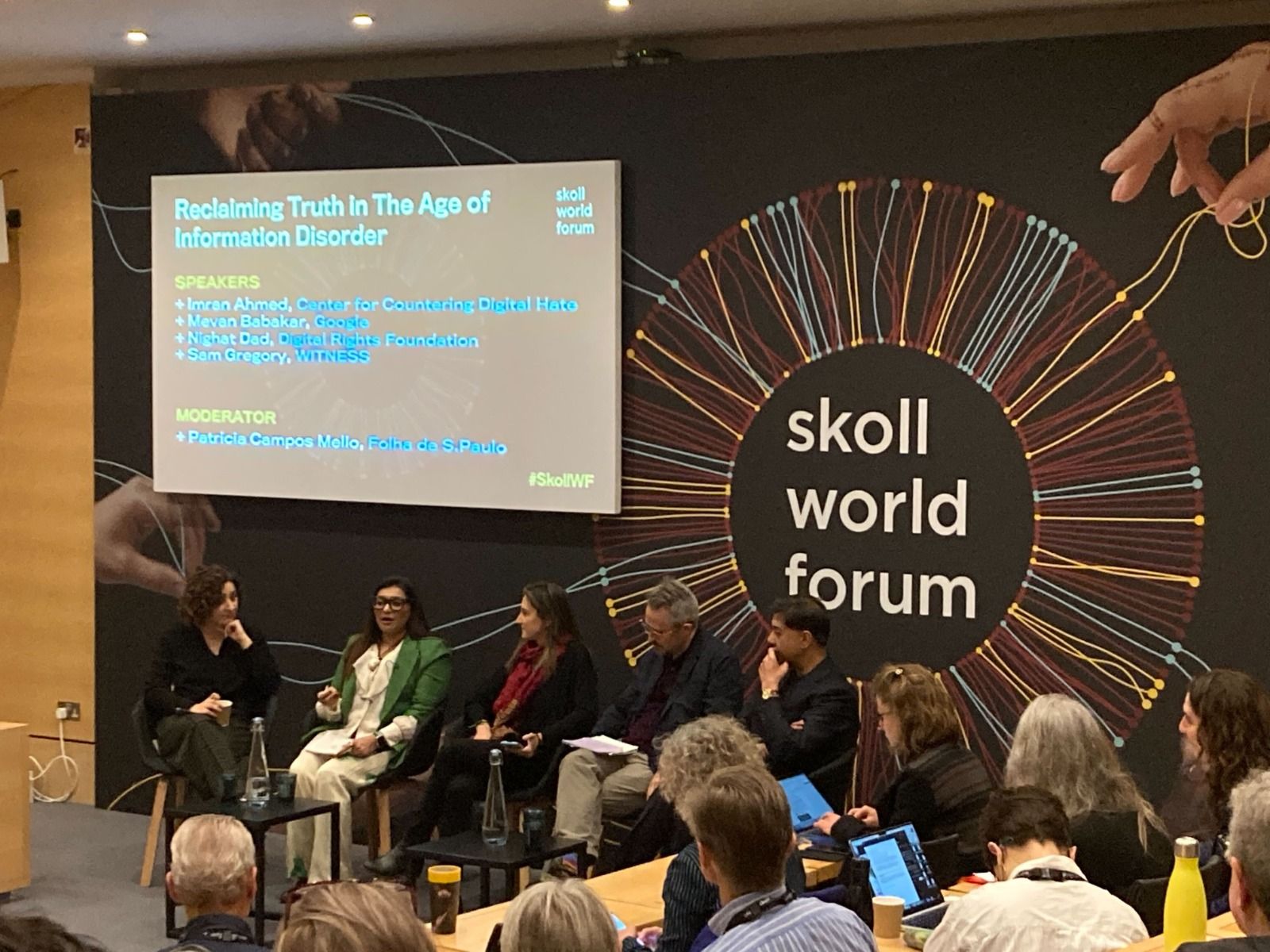TAI had the privilege to attend the Skoll Forum* in Oxford and besides attending inspiring sessions and networking, we also co-hosted together with Accountability Lab an informal lunch to connect with diversity of actors around the challenges ensuring locally led accountability of climate finance.
Without a chance to capture this incredibly rich event, here some ideas that resonate with TAI:
Some deeply inspiring women addressed the public, including Jacinda Ardern, former prime minister of New Zealand, who reminded us that kindness and humility are a strength and not a weakness, including in politics and that despite all challenges we had to keep up our expectations.
Throughout the Forum, there was a shared concern about the state of democracy but also a reminder that democracy is not a thing but an ever-evolving process and that we should see the crises as a moment of opportunity to change the current distribution of power.
At a session on “Beyond the Vote: Innovating Our Everyday Democracies” speakers shared their approaches to reinvigorating democratic systems, for instance by supporting alternative structures of power and grass root movements, strengthening strategic communication and new narratives that focus on empathy, collective action for emancipation, and a common ground that unites us. Speakers called funders to
recognize the resistance of the local movements (not only speaking about public and private power’s misdoings) and elevate their stories
protect basic rules of the democratic game - underlining that the rights agenda continues being relevant too. As Mary Robinson, the first woman President of Ireland and former UN High Commissioner for Human Rights; Chair of The Elders put it “social media sugaring our brains” and we are getting rid of rules. We need people within and outside governments, who see the value of reinstituting rules that are morally consistent.
recognize the value of and support transnational collaborations
support enabling environment and narratives. The power of imagination to retell our stories was recurring, and to think about narratives that unite instead of further dividing – e.g. ‘liberation for all’.
Relatedly a session on Reshaping Power for a Shared Future speakers called philanthropy to put their money where their principles are (for instance, only 0.1 of all philanthropic money goes to black women). There was a reminder that while representation was an important goal and in most parts of the world, women continue being underrepresented – keeping them into power, equipping them with the skills and resilience to be able to overcome racism, prejudice, male dominance in politics was something funders should focus more on supporting.
TAI joined several sessions that delt with questions of healthy information ecosystem, including disinformation and AI focusing on the need to bring in checks and balances, need to support policies tailored to local realities, regulations and equipping people with skills to look at content with vigilance. Funders can do this by pushing for more transparency, accountability and responsibility of the information ecosystem - not just of social platforms’ content but forcing genuine transparency on companies on their foundational structures, operations and advertising.
Last, but not least, a highlight on diverse and rich conversations around Climate Justice. Sonia Guajajara, Brazil’s first ever minister for indigenous people, spoke about the need to shift perspectives, and bring to position of power indigenous communities, guardians of the forests. What stayed with me from sessions is the urgent need to channel funds to communities, activists, movements and civil society organizations who are at the forefront of the struggles, so that they can demand more accountability from private and public actors and build networks of solidarity and protection.
Besides private philanthropy there are infinite other ways of doing it from blended finance, to community funds, impact investment, unlocking local capital, just to mention a few. Skoll has also launched earlier this month The Centre for Exponential Change, designed to build a community of enablers, including funders, for system orchestrators, so they can flourish and consistently leverage critical networks.
After this glamorous and uplifting week, now we have the responsibility to build on the new relationships for stronger collaborations across geographies and issue areas. TAI is taking tons of inspiration from the Skoll Forum to our upcoming Annual Learning Days.
Related articles:
George and Amal Clooney speak about ‘war on truth, journalists and women’ (msn.com)
Sonia Guajajara defende conhecimento indígena como solução da crise climática (d24am.com)
*Skoll Foundation’s annual flagship event, the Skoll Forum took place in April in Oxford. The theme this year was “coming together to accelerate innovative solutions to the world’s most pressing problems”. Around 1500 participants from all over the world gathered (and many more online) to network, listen, get inspired, and co-create. If you had no chance to attend last week, you can still watch main session online from mid-April Skoll | Skoll World Forum.
